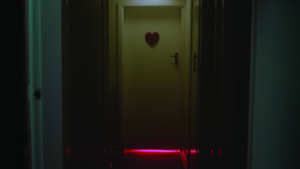Film critics spend their workday at the cinema, munching on buttered popcorn while watching the latest soon-to-be-released movies, then retire to their computers to criticize and dispense their razor-sharp wit. It’s not hard to imagine why they’re regarded by many in the film industry with the same disdain that’s usually reserved for North Korean dictators and roaches. They are loathed, feared and unloved.
In fact, so troublesome have film critics become for studios and distributors that in July 2000 an executive at Columbia Pictures decided simply to do away with them once and for all. He created ‘David Manning’, a friendly – notwithstanding fictional – film critic who could be counted on to write glowing reviews for films released by the studio; somebody they could quote at length (and they did!) in promotional material for their films. No matter how appalling a movie was, Manning could always be relied upon to issue nothing but abundant praise for the film, even describing our very own Heath Ledger as ‘this year’s hottest new star’ for his performance in A Knight’s Tale (Brian Helgeland, 2001). That is, until June 2001 (a full year later), when a journalist from Newsweek stumbled upon the imaginary reviewer and exposed the charade, forcing the studio to once again deal with the dreaded (and now angered) real film critics.
While amusing, what the David Manning incident illustrates is that the role of the film critic is changing. Today, film critics in Australia are facing a technologically evolving industry, shrewder studio marketing and publicity machines, the onslaught of online ‘do-it-yourself reviewing’, and an increasingly scorned group of Aussie filmmakers who by now must be feeling like they just can’t catch a break. So what does the future hold for them and for film criticism in Australia?
Peter Thompson has been reviewing films for the Nine Network’s Sunday program since its first broadcast in 1981. Coming from a creative family (his father John was a poet and worked in radio and his brother is actor Jack Thompson), he began his career by studying performance at Sydney’s Ensemble Theatre. After graduating with an arts degree from the University of Sydney he worked at ABC Television as a film editor for four years, then began directing and producing several films including The Surfing Years (1966) and Cardin in Australia (1967). Peter thinks that the very nature of cinema and the film experience has changed dramatically in the last twenty years and film critics have had to change with it.
‘When I was growing up, movies were a magical thing that happened in darkened cinemas, now they’re pervasive … they’re everywhere’, says Thompson. ‘People have not just one television in the house but several, everything’s released on DVD, and now we have pay television, which delivers movies twenty-four hours a day and has sixty to eighty movies available every weekend.’ While it’s great to have that access, it has diminished the mystery and the magic of movies, making them less powerful. ‘We’re right in the middle of quite a radical revolution where people’s habits are changing. I’m not sure what the outcome of it is going to be but I think the repercussions are going to be enormous.’
Thompson, who also reviews films for Showtime Movie Greats, believes that the diversity and type of films offered at the cinemas has also changed, with a bunching around the mainstream and films targeted at younger aged audiences. He says that, because younger audiences are more interested in spectacular films and outrageous comedies, it has put off many older audiences from going to the cinemas. ‘A lot of people have drifted away. They don’t want to go to multiplexes, which are crowded with young people, they want to go to the movies but it’s not to their taste anymore.’
Thompson argues that, while video used to be a second choice to the cinema, because everybody knew that it was an inferior experience, with home cinema and digital imaging, and because cinemas aren’t meeting the tastes of older audiences, it’s become a primary experience. ‘You’ve got your own luxury cinema at home. The sale of DVDs is surprisingly high and the rental of DVDs is going through the roof. The other thing is, pay television’s numbers just keep climbing and climbing.’
The promoters of junk culture say all you need is your own taste. I’m not a defender of elitist culture … [but] you’ve got to write from a philosophical position. It’s got to be based on more than an understanding of movies. It takes life experience, a natural talent and determination and hard work.
– Peter Thompson
Thompson says film criticism has also changed with the introduction of online amateur reviewing, placing many critics in a very dynamic situation. ‘I think the Internet is having a profound affect’, he says. ‘[Audiences] can trace people and films they’re interested in and it’s interactive, they can actually write their own commentary.’ Thompson suggests that, in the last twenty years, junk has become more respectable and there now exists a ‘junk culture’ which has grown up in opposition to the élite culture.
The promoters of junk culture say all you need is your own taste. I’m not a defender of élitist culture … [but] you’ve got to write from a philosophical position. It’s got to be based on more than an understanding of movies. It takes life experience, a natural talent and determination and hard work.
While he recognizes that there are still a lot of talented people reviewing films in Australia, Thompson says the reason we don’t see more high quality reviewing has to do with the editors of newspapers and magazines.
They simply don’t pay enough to journalists and reviewers to allow those people to give it the time that it needs … What would raise the standard of film reviewing in Australia is if editors would take it more seriously and give it more space, raising the stakes and getting more ambitious people working harder.
He says that Australia has yet to develop a mature culture of creative analysis and supportive criticism. ‘Naturally a lot of creative people are very defensive and they don’t want to hear criticism of their work. That’s a cultural problem in Australia. We don’t live in a community where criticism is seen as constructive.’
Thompson is one of a handful of critics in Australia who is attempting to breach the distrust between film critics and filmmakers by refusing to review films he doesn’t like. ‘I feel that I swim against the tide’, he says. ‘I think there are so many films that are worth talking about that I would rather use my time to encourage people towards what I see as positive, enjoyable and pleasurable experiences.’ He agrees that there is a role for warning people off bad films, but says you then get into a difficult area, because something that he doesn’t like may very well be somebody else’s cup of tea. ‘I feel very strongly about treating creative people with respect and if a film doesn’t work in my view, I would rather keep my opinions private.’
Paul Byrnes, a senior film reviewer for The Sydney Morning Herald, says that because there has been an orchestrated movement driven by the Hollywood studios, which has sought to undermine reviewers and critics, the whole notion of reviewing and criticism has changed to its detriment.
‘Hollywood has always hated critics and will continue to; but for a long time critics and reviewers were trusted by the public because the public distrusted the marketing ploys of the studios’, says Byrnes. However, this is no longer the case; the public has been convinced in the last twenty years that marketing budgets and box office numbers are actually reliable barometers of the quality of a film.
Byrnes, a former director of the Sydney Film Festival, says that by inculcating a distrust of the critic, the studios undermine the role of the critic and their relationship with the audience. ‘We’re in a position now where the critics mean less than they ever did in the history of cinema, yet at no time in the last hundred years has the role of the critic been more important.’
He believes moviegoers are becoming more docile and surrendering their power to make decisions to the studios, with studios specifically targeting younger audiences, the major demographic for film-going, who are more vulnerable and easier to fool, and who are less likely to separate studio-driven opinion from independent opinion.
But I think you can only fool them part of the time. Even the most unschooled viewer has strong critical opinions about the films they’re seeing. Part of my job is to try and sharpen the tools that are in their box … by reading interesting opinions about films you develop your own set of tools to evaluate them.
Byrnes sees studios, distributors and publicists using any means at their disposal to attempt to intimidate or steamroll critics. When he was first starting out in film reviewing, their ‘tricks’ were unrefined: ‘They would ring up my house and berate my partner’, recalls Byrnes. ‘They were very unsubtle.’ However, today their tactics have become more sophisticated and less obvious, leaving not even the major newspapers and television shows immune from the pressures. ‘They can withdraw their advertising from the newspaper, they can refuse TV shows access to clips, they can just stop inviting you to things. They will try all of those things to make their dissatisfaction felt.’
On the other hand, critics in Australia are less susceptible to bribery than reviewers working in Hollywood. ‘It’s not the same here as it is in the United States, where junkets are a major incentive for people to be nice in their reviews about films. Hollywood press agents and publicists can wield a certain degree of power in that relationship.’ Byrnes says that scale of courting critics doesn’t occur here in Australia, however, he does recall one amusing attempt at inducement by a publicist during the Australian launch of a James Bond film about ten years ago. ‘I did receive a half-bottle of French champagne,’ he says laughing. ‘I was insulted. I thought, “Do they think they can buy me off with a half-bottle?’’’
In the end, according to Byrnes, studios need critics more than critics need studios, as he can still review a film by seeing it when it opens. ‘It will be a week late in the Herald but I can still do it, and if it’s push-comes-to-shove, the Herald will back me to do it.’ He says the main problem Australian film reviewers experience has nothing to do with publicists but in reviewing films from their own country.
I sometimes feel the pressures of writing about Australian films and I sometimes suspect that some of my colleagues feel different. But if you apply different standards to an Australian film you’re not doing the film any favours. You’re responsibility as a film reviewer is not to the filmmaker, it’s to the reader.
Byrnes suggests that part of the problem is that many film critics and reviewers are not formally trained in film studies or journalism, and they don’t have a good grasp of the history of the medium, a seasoned pen, or a desire to write passionately. He says good critics need ‘curiosity, writing ability, a sense of the way in which art and culture relate to the wider world, and a desire to be vigorous in their thinking’ as well as an ability to be able to interrogate their own reactions and write about them honestly.
In 1986 Andrew Urban, editor of the online film review site Urban Cinefile – which offers its readers a cross between mass-market and academic reviews – was the first Australian journalist to cover the Cannes Film Festival, sending reports back to The Australian newspaper. Urban is the Australian Bureau Chief for the London-based international film industry monthly Moving Pictures, and he also presents the Sunday and Monday night movie premieres on the World Movies channel for Foxtel, Optus and Austar.
There’s a great temptation for critics to put on their holsters and go out like a cowboy with two guns blazing and fire off their most sarcastic and cynical lines. For me the joy in reviewing bad films is not doing that, but in restraint, and by restraint providing a much more damning criticism but a positive one. I want to be critical in a positive way not in a destructive and bitchy way.
– Andrew Urban
‘I actually enjoy reviewing really bad films’, proclaims Urban.
It is a great challenge in writing. There’s a great temptation for critics to put on their holsters and go out like a cowboy with two guns blazing and fire off their most sarcastic and cynical lines. For me the joy in reviewing bad films is not doing that, but in restraint, and by restraint providing a much more damning criticism but a positive one. I want to be critical in a positive way, not in a destructive and bitchy way.
Urban – also known to many as the interviewer for the SBS show Front Up, in which he randomly approaches people in the streets and has a conversation about their life experiences – believes that the problem in Australia at the moment is not so much the film critics but the quality of the films. While acknowledging that Australia has produced some outstanding films in recent years, such as The Tracker (Rolf de Heer, 2002), One Night The Moon (Rachel Perkins, 2001), Rabbit-Proof Fence (Phillip Noyce, 2002) and Lantana (Ray Lawrence, 2001), he says most Australian filmmakers aren’t thinking on a big scale. ‘I think we’re playing it far too safe, we’re not exploring the edges and we’re not exploring politics and society. I’d like to see the subject matter get a bit more gutsy.’ He says films like Strictly Ballroom (Baz Luhrmann, 1992), The Adventures of Priscilla, Queen of the Desert (Stephan Elliott, 1994), and Muriel’s Wedding (PJ Hogan, 1994) succeeded because they weren’t really comedies but painful stories. ‘I think our comedies have generally not been up to scratch, they’ve been sitcom standard … we need to really learn a bit about writing big screen comedies.’
He does admit that while the quality of film reviewing in Australia is good, it could be a lot better. ‘I think Australian film critics need to feel that they are not quite there yet … there needs to be a sense of constantly looking to write better, write more incisively and more instructively. The writing is very good, obviously it can improve … certainly I feel mine could improve.’
What Urban says he really despises is the star-ratings system that most publications are adopting.
I think it is the most ridiculous concept that’s now being taken up by everybody … my hat’s off to The Sydney Morning Herald for being the only paper that’s resisted. I think stars are actually an insult to everybody; not only are they meaningless, but they turn criticism into a school exercise. It adds a supercilious tone to criticism that I dislike … I don’t believe that they have a function and they should be banned by law!
Urban says he would like to see an accreditation system for film critics to recognize different levels of achievement in the profession, as today there are a lot more people reviewing films and for a lot more publications. ‘The amount of interest in screen culture has grown extraordinarily in the last fifteen to twenty years.’ However, an awful lot of reviews that he sees on the web ‘wouldn’t pass a first form English test’ and are often just opinion pieces and nothing else:
I like reviews which show an understanding of the film, which give me a sense of what the style of the film is, and how effectively the filmmaker has used his craft. I don’t want to read every revelation. What I like is when a film reviewer finds something in the film that gives us an insight into the filmmaker that even the filmmaker didn’t know.
He says breaking into film reviewing is much harder than most people believe:
Everybody wants to review. You need to have the experience of having seen films. Critics need to have that experience certainly more than filmmakers. If I were starting out I would make sure I had a fantastic score of movies that I had seen, then I would start reviewing a few of those films just for practice and getting feedback on that.
Urban’s favourite types of reviews are a combination of intellectual and emotional.
I like a sense of humour in the review and I like a sense of humanity. For me the most successful reviews are those that make me understand, give me a window into the film without spoiling those wonderful moments that cinema can give us … the surprises.
An online Australian review site that Urban credits with providing a more intellectual analysis of cinema is Senses of Cinema. Established in 1999 andfunded by the Australian Film Commission and Film Victoria, the web site is ‘devoted to the serious and eclectic discussion of cinema’. It is designed to be a space for what is referred to as ‘cinephilic’ writing, described by editor Jake Wilson as ‘writing that comes out of somebody’s personal love of cinema but at the same time can be quite analytical and theoretical’. The web site is particularly committed to discussing independent, experimental and third world cinema, ‘everything from Renoir to Antonioni to Solàs to Oshima to Morrissey to Jost to Friedrich to Snow’, as well as short films, non-narrative films and festivals.
At just twenty-five-years-old (the average age of the editorial team is twenty-seven years) Wilson says Senses of Cinema is providing information on a broader range of films; films that aren’t being covered in the mainstream media.
Most journals would be more journalistic based, shorter and less analytical writing. We have a lot less space restrictions … we can print theses of anything up to five to ten thousand words without much difficulty. We have the space to be analytical.
In Australia, it’s playing a role that isn’t being played elsewhere in terms of the discussion of world cinema. Many of the films we wind up covering haven’t made it to Australia yet. A lot of our writers are people from all around the world.
Wilson’s long-term goal for the web site is to see it foster more debate about cinema and film history. ‘It’s very hard to get debates started … we’re always trying to encourage more debates and getting people engaging with each other’s point of view.’
With both a growing Australian and international audience (the web site receives over 12,000 hits per day), Wilson is always looking out for contributors, especially young film writers and reviewers:
We’re looking for people who have not only a love of cinema but some ideas about it, a sense of film history and how films that are coming out fit into film history. At Senses of Cinema we’re always looking around for new younger writers who have that kind of background, knowledge and interest.
He does however issue a general warning to young hopefuls considering a career in professional film reviewing: ‘It is frightening. You’re constantly putting yourself on the line.’





